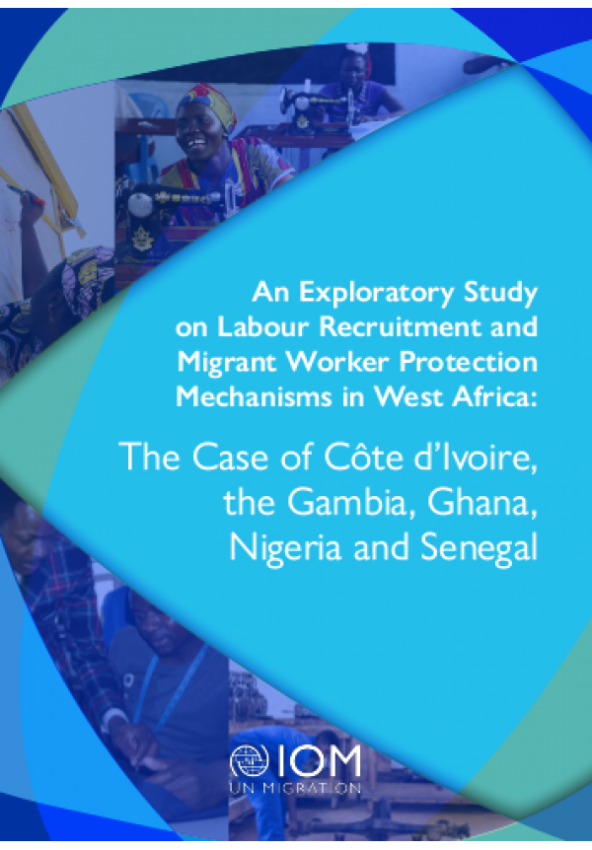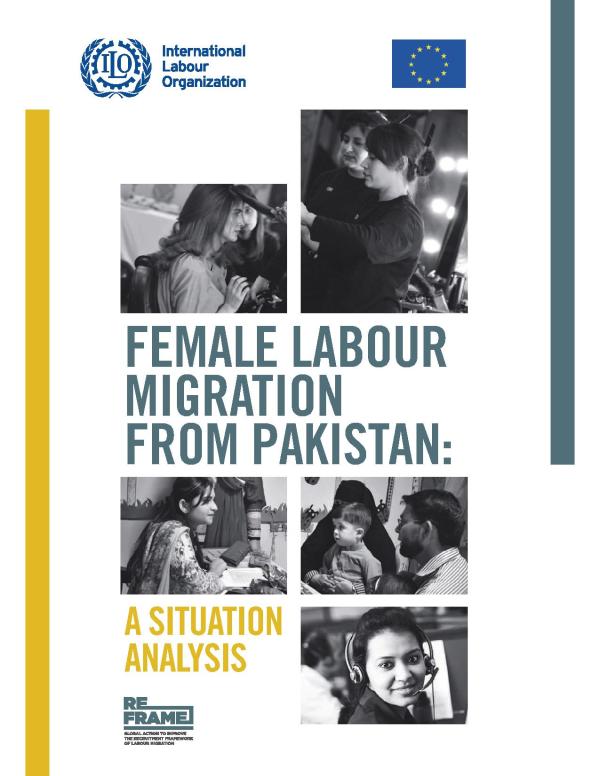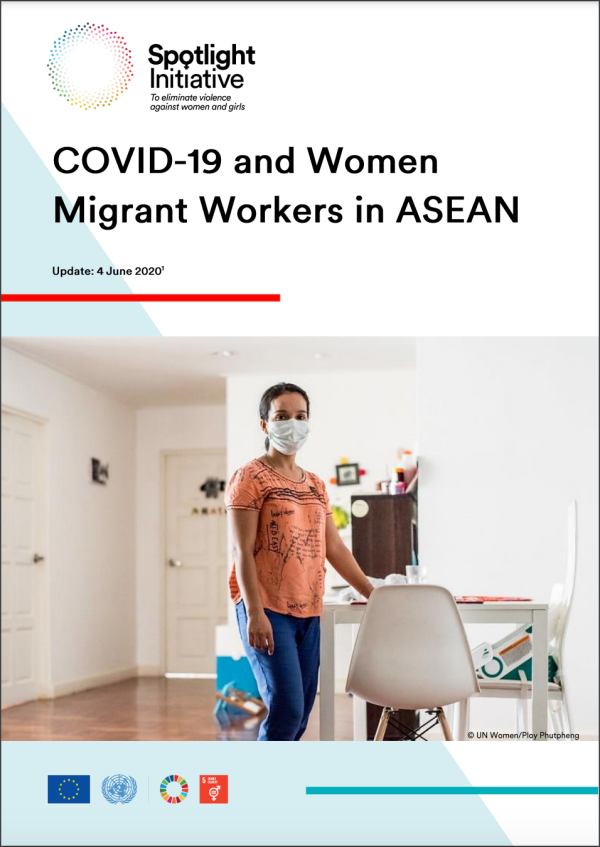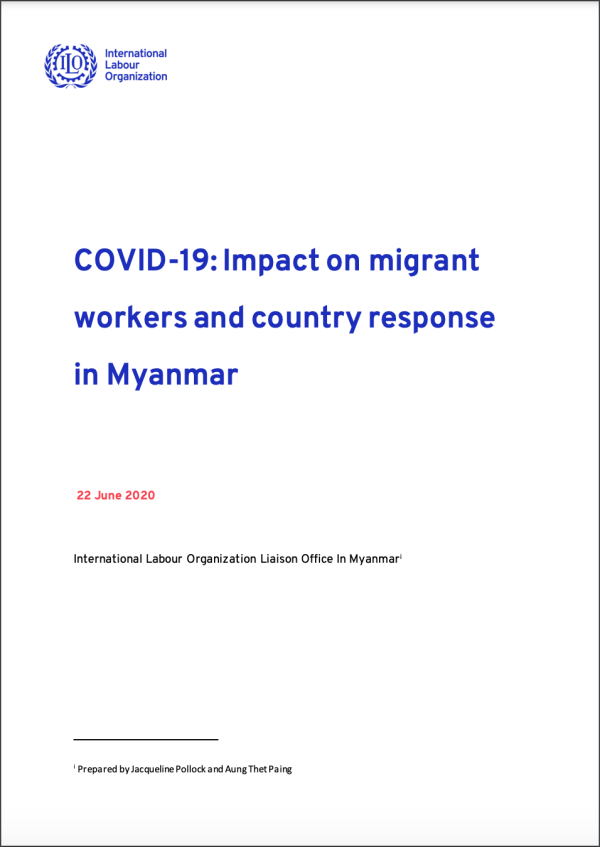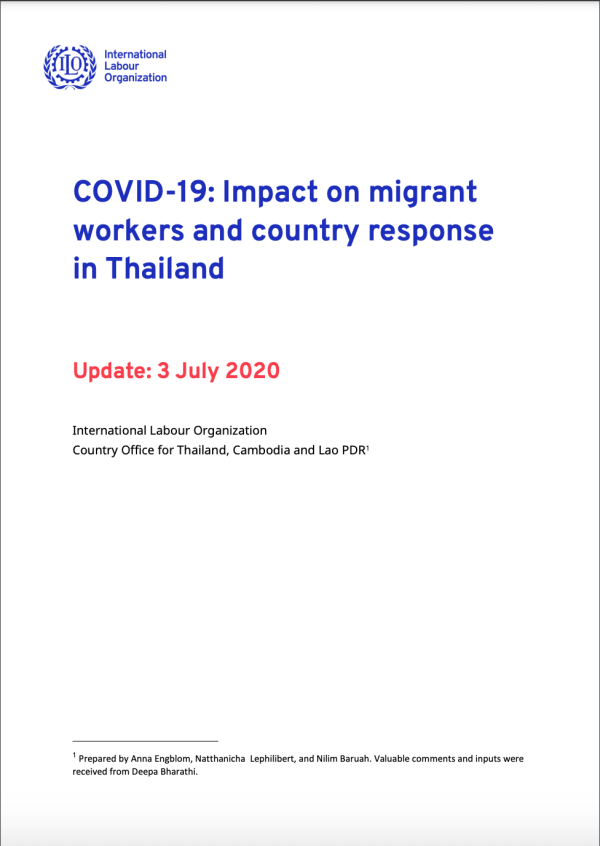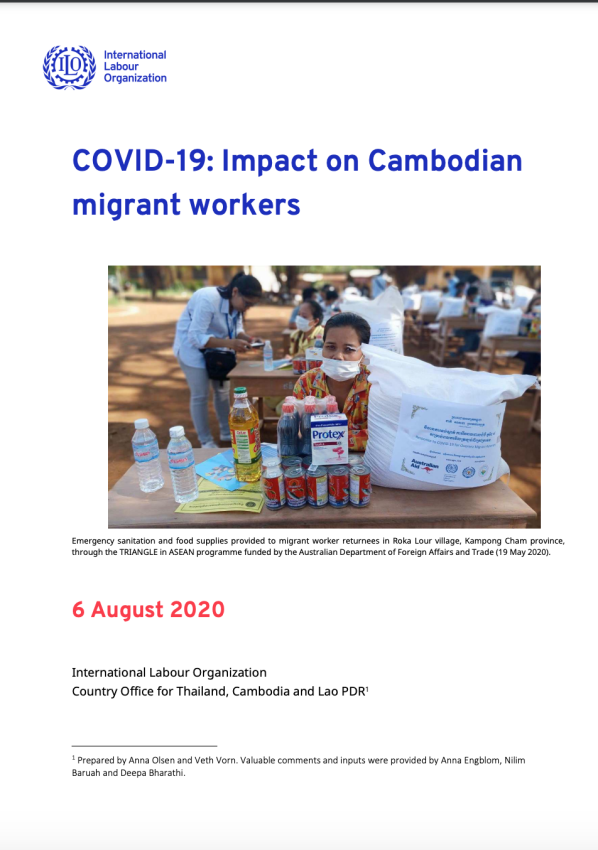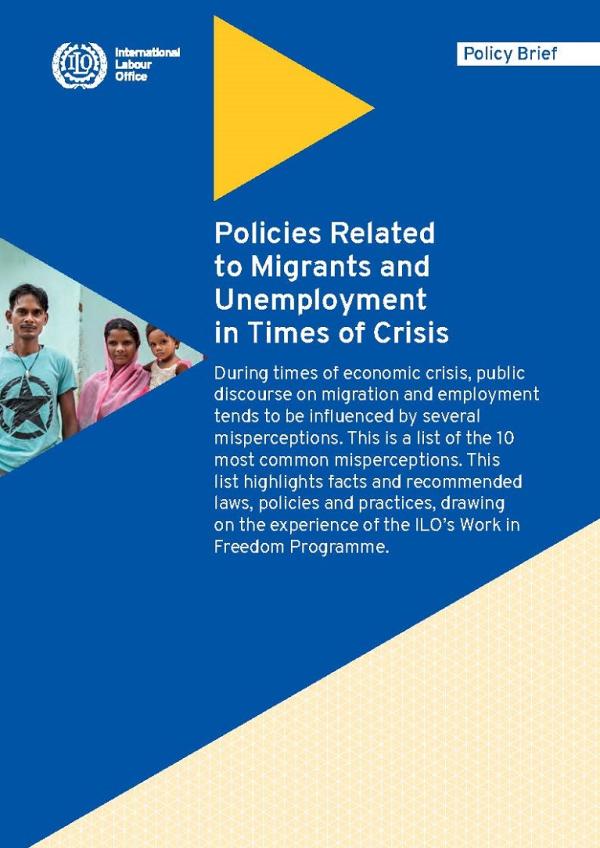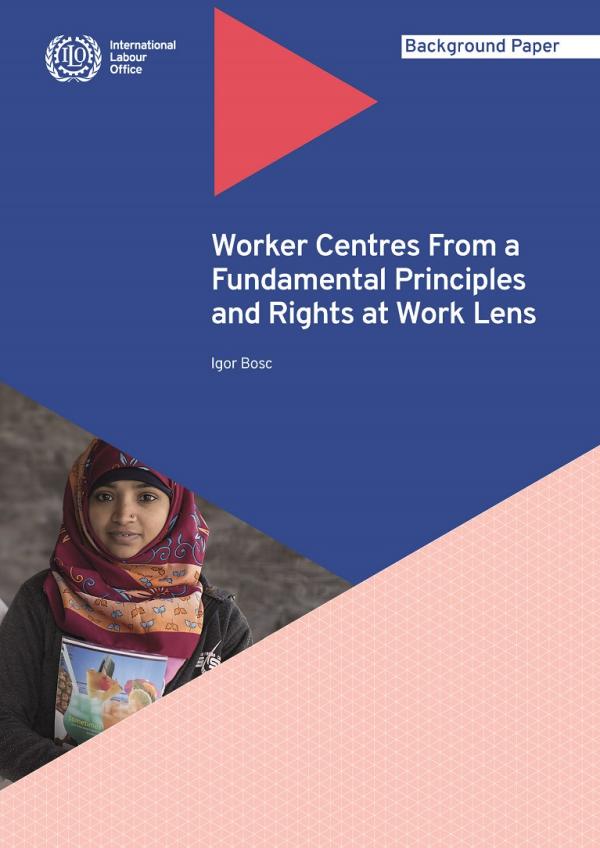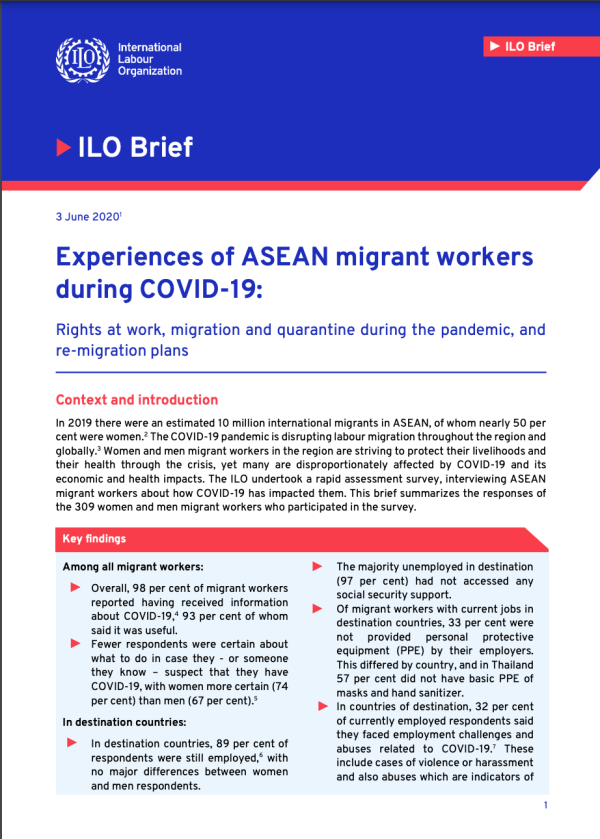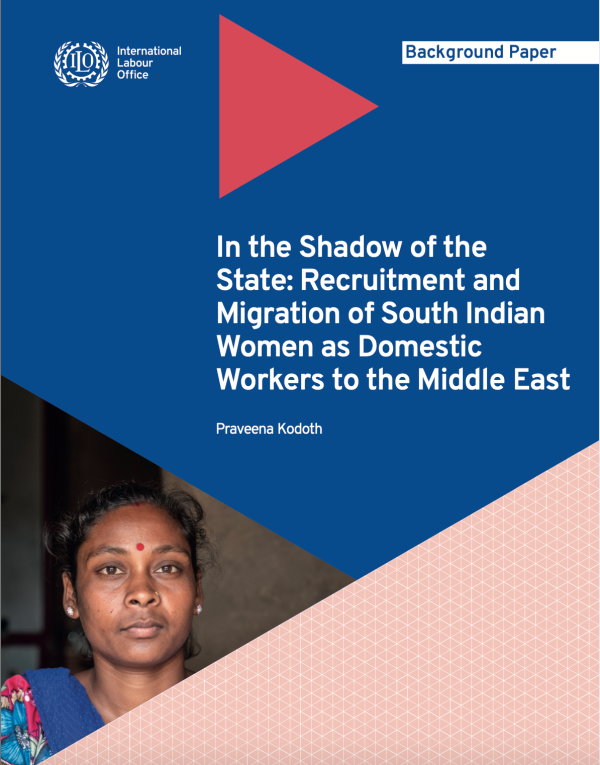An Exploratory Study on Labour Recruitment and Migrant Worker Protection Mechanisms in West Africa: The Case of Côte d'Ivoire, the Gambia, Ghana, Nigeria and Senegal
The topics of ethical recruitment, defined as the recruitment of workers in a lawful, fair and transparent manner that respects their dignity and human rights, and labour migration, defined as the movement of persons from one State to another, or within their own country of residence, for the purpose of employment, go hand in hand. While labour migration can serve as a significant opportunity, it can also constitute a risk for those who partake in it. A risk may present itself if labour migration is undertaken as an end result of unethical recruitment practices, which may include practices that are non-transparent and fail to respect the dignity as well as human rights of workers. In such circumstances, workers may be at risk of exploitation during both the recruitment process and employment. Consistent adherence to ethical recruitment practices by all parties implicated in the recruitment process (including private recruitment agencies, employers and jobseekers) therefore significantly contributes to the reduction of these risks.
In West Africa, this correlation is particularly relevant as young West African migrants attracted by false promises of employment, high wages and decent working and living conditions are increasingly subjected to exploitative recruitment processes. Through this study, IOM seeks to shed light on this situation by assessing current recruitment practices and migrant worker protection mechanisms in place in the following case study countries: Côte d’Ivoire, the Gambia, Ghana, Nigeria and Senegal. This study explores and critically examines the existing evidence base on key aspects of the topic to inform potential policy and programmatic responses designed to enhance labour migration impacts for current and potential migrant workers located in as well as originating from West Africa. This publication entails both a desk-based review of the current published evidence base as well as insights derived from interviews with national stakeholders from the five case study countries.
This research publication was made possible through support provided by the Migration Resource Allocation Committee (MIRAC).
Type of document :
Country/Region : , , , , ,
Year of publication :
Theme : , , ,
Female labour migration from Pakistan: A situation analysis
This report examines patterns and characteristics of female labour migration from Pakistan, and provides recommendations to ensure that women have equal opportunities for safe and fair migration.
This study aims to further examine the patterns and characteristics of female migration for employment from Pakistan and explores specifically why the number of Pakistani female migrant workers remains so low. The findings and recommendations of this study will guide the interventions of the ILO, the Government of Pakistan and social partners towards fair recruitment of migrant workers, including women migrant workers, in line with the Decent Work Country Programme (DWCP) (2016-20) for Pakistan, and the ILO’s Fair Recruitment Initiative.
Type of document :
Country/Region :
Year of publication :
Theme : , , ,
COVID-19 and women migrant workers in ASEAN
This brief explores the multi-dimensional impact of the COVID-19 pandemic on women migrant workers in and from the ASEAN region. While women migrant workers in the ASEAN region strive to protect their livelihoods and their health, COVID-19 has presented them with a health crisis, compounded by detrimental impacts on freedom from violence and harassment, employment, income, social protection, access to services, and access to justice. This brief outlines the critical programmatic and policy responses needed. ILO-UN Women Safe and Fair Programme, as part of the EU-UN Spotlight Initiative, is committed to ensuring women migrant workers’ rights are protected and they receive support when and where they need it.
Type of document :
Country/Region : , , , , , , , , , ,
Year of publication :
Theme : , ,
COVID-19: Impact on migrant workers and country response in Myanmar
Country brief prepared by the ILO Liaison Office in Myanmar on the impact of the COVID-19 pandemic on migrant workers, and country's responses.
Type of document :
Country/Region : ,
Year of publication :
Theme : , ,
COVID-19: Impact on migrant workers and country response in Thailand
Country brief prepared by the ILO’s Country Office for Thailand on the impact of the COVID-19 pandemic on migrant workers, and country's responses.
Type of document :
Country/Region : ,
Year of publication :
Theme : , ,
COVID-19: Impact on migrant workers and country response in Cambodia
Country brief prepared by the ILO’s Regional Office for Asia and the Pacific on the impact of the COVID-19 pandemic on migrant workers, and country responses.
Type of document :
Country/Region : ,
Year of publication :
Theme :
Policy brief on policies related to migrants and unemployment in times of crisis
The purpose of this policy brief is to explain influence of misperceptions during times of economic crisis, on public discourse on migration and employment and recommend laws, policies and practices to overcome these misperceptions.
During times of economic crisis, public discourse on migration and employment tends to be influenced by several misperceptions. This is a list of the 10 most common misperceptions. This list highlights facts, recommended laws, policies and practices, drawing on the ILO’s Work in Freedom Programme. It was presented at the Kafala Reform Workshop on 11 March 2020 at Beirut, Lebanon by Mr Igor Bosc, CTA, Work in freedom Programme to the Minister of Labour and participants.
Type of document :
Country/Region : , , , ,
Year of publication :
Theme : , ,
Worker Centres from a Fundamental Principles and Rights at Work Lens
The purpose of this paper is to explain how a worker centre can also perform functions that support fundamental principles and rights at work. The paper draws on the experience of the ILO’s Work in Freedom programme in supporting worker centres in South and West Asia.
Worker centres are meant for all types of workers, however they tend to cater primarily to the needs of informal workers and migrant workers and tend to exist and be located in areas where fundamental principles and rights at work, such as non-discrimination, freedom of association and collective bargaining as enshrined in International Labour Organization (ILO) Conventions No. 111, No. 87 and No. 98, are a distant reality for both informal workers and migrant workers.
This paper draws on the experience of the ILO’s Work in Freedom programme in supporting worker centres in South and West Asia. It was presented at the ILO Anniversary Conference “Continuing the Struggle: The International Labour Organization Centenary and the Future of Global Worker Rights” held on 21–22 November 2019 in Washington, DC at a panel titled “Protecting Migrants and Refugees Working in Global Supply Chains: New Directions for the ILO.
Type of document :
Country/Region : , , , ,
Year of publication :
Theme : , , , ,
Experiences of ASEAN migrant workers during COVID-19: Rights at work, migration and quarantine during the pandemic, and re-migration plans
The COVID-19 pandemic is disrupting labour migration throughout the ASEAN region and globally. In 2019 there were an estimated 10 million international migrants in ASEAN, of whom nearly 50 per cent were women. The ILO undertook a rapid assessment survey, interviewing ASEAN migrant workers from end-March to end-April 2020 about how COVID-19 has impacted them. This brief summarizes the responses of the 309 women and men migrant workers who participated in the survey.
Type of document :
Country/Region : , , , , , , , , , ,
Year of publication :
Theme : , , ,
In the Shadow of the State: Recruitment and Migration of South Indian Women as Domestic Workers to the Middle East
This background paper describes and analyses the drivers, pathways and experiences of migrant women from South India as domestic workers in Gulf countries. It is based on primary and secondary research.
Type of document :
Country/Region : , , , ,
Year of publication :
Theme : , , , , ,
Subscribe to the Fair Recruitment Initiative Newsletter
Sign up to receive news delivered to your inbox.

